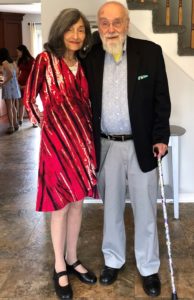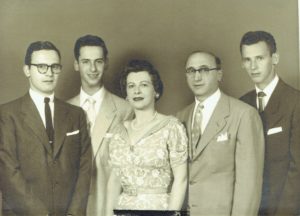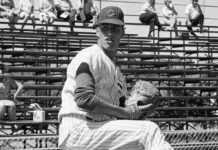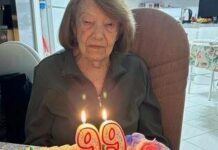
Psychologist, biologist and Holocaust refugee Jacques Lipetz died on Jan. 11. He was 89.
To escape Nazi rule, Lipetz and his family fled in 1941 from Belgium to Manila, Philippines, where they stayed through the Japanese occupation until the United States’ liberation of the country in 1945.
Following the family’s escape to New York that year, Lipetz attended Brown University for his bachelor’s and master’s degrees and Yale University for his doctorate. He studied biology and later psychology, serving as a clinical psychologist for more than 40 years in the Philadelphia area, meeting with patients weeks before his death.
His career as a psychologist was his commitment to helping others after he and his family were helped to escape the Holocaust, according to his wife, Inez Friedman-Lipetz.
“He felt he was a survivor for a reason,” she said.
Born in Antwerp, Belgium in 1932, Lipetz was the oldest of three boys. He served as a protector of his siblings, brother Eric Lipetz said.
During Nazi bombings in Belgium in the late 1930s, Eric Lipetz would crawl into bed with his brother.
“He said, ‘Don’t worry, don’t worry,’ but I think he really was just as scared as I was,” Eric Lipetz said.
The Lipetz family fled from Antwerp to Marseilles, France, then to Portugal, where Lipetz’s uncle arranged for the family to migrate to the U.S. on a visitor’s visa.
After a tumultuous trip to Ellis Island, they were denied entry due to the quota of Jews permitted into the country at the time.
“We thought we were free and that everything would be OK, and nobody was looking to kill us,” Eric Lipetz said. “But we were told to go back to Belgium.”
The Philippines was an American protectorate after the Spanish-American War, and Lipetz’s uncle ran a cigar factory in Manila, making it the safest place for the family to seek refuge on the eve of the Holocaust, but their time there was marked with hardships.
Eric Lipetz recalled watching Japanese forces shoot down an American fighter plane. Eric and Jacques Lipetz raced in the direction of the falling plane, hoping in vain to save the pilot.
“By the time his parachute landed on land, he was dead,” Eric Lipetz recalled. “But we didn’t know that, so we went right up to him.”
Realizing more Axis soldiers were likely to approach the scene, Jacques Lipetz convinced his brother, fixated on the fallen pilot, to run from the plane’s debris.
“If it wasn’t for Jacques, I would have stuck around, and I would have been caught and killed,” Eric Lipetz said. “He literally dragged me out of there.”
The event stuck with them both.
“Because he was the oldest, I think he carried the most demons,” Eric Lipetz said. “He understood death better than my brother and I.”
Jacques Lipetz’s story is featured in the 2013 film “Rescue in the Philippines” and the 2008 book “Escape to Manila: From Nazi Tyranny to Japanese Terror” by Frank Ephraim.
Though eager to share his family’s survival story, the Holocaust weighed deeply on Lipetz, Friedman-Lipetz said.
“Memories from the Holocaust stayed with him his entire life,” Friedman-Lipetz said. “He just couldn’t bury it.”

Plagued by food insecurity throughout his time as a refugee, Lipetz tended to buy more food than his household could eat, even decades after the Holocaust. At times in his life, he survived solely on rice and bits of fish, and at one point, while seeking refuge in Marseilles with a man who ran a halvah factory, he only ate halvah for months.
Lipetz was introverted and appreciated more in-depth relationships, said J. Lamar Freed, a friend of Lipetz whom he met at a peer supervision support group for psychologists.
“What he told me was he had to work because if he didn’t work, he would not be paying the debt he had for escaping the Holocaust,” Freed said. “His dedication to his work was more than just a calling; it was an obligation.”
Lipetz mostly worked with clients with injuries or who were fighting for worker’s compensation. Friedman-Lipetz recalls Lipetz taking calls from patients at 2 or 3 a.m., reluctant to turn down a request for help.
Though profoundly impacted by the Holocaust and committed to working around the clock, Lipetz had a love for levity and the finer things.
When he and Friedman-Lipetz met at a class the Reconstructionist Rabbinical College held in 1987, she remembers him dressed impeccably. He bought fine ties and matched them with his shirts, she said.
At synagogue, Lipetz enjoyed talking with the cantor after services, and the two would exchange dozens of puns, many of which Lipetz came up with himself.
“He lived life thoughtfully,” Friedman-Lipetz said. “He enjoyed humor.”
In addition to his wife and brother, Lipetz is survived by his children, Andrew and David Lipetz; stepchildren, Trina Weingarten and Jed Fishback; and nine grandchildren.
[email protected]; 215-832-0741






